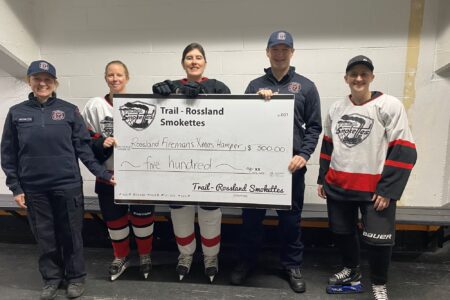Washington state wolf pack wiped out
This story is reproduced from HOWL Colorado.org – an organization dedicated to educating people about wolves.
Washington state officials can hang the “Mission Accomplished” banner after helicopter-riding sharpshooters kill off their sixth Wedge Pack wolf – With the alpha male and female declared dead, the pack is officially wiped out.
The Wedge Pack (located in northern Stephens County just below Christina Lake, B.C.) was sentenced to death after preying on the cattle belonging to one specific Rancher – who was described as not being cooperative with measures which may have protected his livestock. Better to not be responsible and get an entire pack of endangered wolves wiped out, right?
The state officials used the Alpha male’s GPS collar to track the pack and used aerial gunning to kill off 6 members of the pack, which would likely doom any survivors to a slow death – especially if it was young wolves that survived the extermination.
Washington Department of Fish and Wildlife Director, Phil Anderson did say that the decision was unpleasant.
“Directing the pack’s removal was a very difficult decision, both personally and professionally, but it was necessary to reset the stage for sustainable wolf recovery in this region,” Anderson said. “Now we will refocus our attention on working with livestock operators and conservation groups to aggressively promote the use of non-lethal tactics to avoid wolf-livestock conflict.”
Many ranchers had already worked with conservation groups to implement the non-lethal strategies, but it is clear from this incident that obstinate refusal to participate may be a fairly successful, if somewhat costly, way to force the hand of state officials to kill wolves which have started moving in to the state.
Hopefully state officials will be able to pressure ranchers to play along in order to avoid situations like this in the future.
Wolves have been migrating naturally in to Washington State, making it one of the first states to see organic repopulation following the early 20th century annihilation.
Here’s the official release from the Washington Department of Fish and Wildlife:
“The department initiated removal of the Wedge Pack late last week in an effort to put a stop to its persistent attacks on livestock from the herd of the Diamond M Ranch in northern Stevens County. Since July, the wolves had killed or injured at least 17 calves and cows from the herd.
The pack takes its name from the triangular shape of the Washington state portion of its range, which is bordered by the Columbia and Kettle rivers and Canada. Its elimination leaves the state with seven confirmed wolf packs and four suspected packs, most of which range in the remote, rugged forests of Northeast Washington.
WDFW began to lethally remove wolves from the pack in early August, as its pattern of predation began to escalate despite non-lethal efforts by the rancher and the department to prevent the attacks. A WDFW marksman killed a non-breeding member of the pack on August 7, and about two weeks later, biologists found the decomposed carcass of a young wolf within the Diamond M herd’s grazing area. The young wolf had not been shot, and the cause of death could not be determined.
Teams of WDFW staff remained in the Wedge through August, trapping extensively and tracking the movements of the alpha male, which had been fitted with a location-transmitting radio collar.
However, Anderson said none of the rancher’s or the department’s efforts to change the pack’s behavior succeeded, and attacks on the Diamond M herd increased through mid-September.
“Ultimately, it became clear that this pack was preying on livestock as its primary food source, and that our actions had not changed that pattern,” Anderson said. “The independent wolf experts we consulted agreed with our staff that removal of the pack was the only viable option.”
With the support of key conservation and livestock organizations, the department announced on Sept. 21 it would remove the pack to create the opportunity for wolves that are not habituated to preying on livestock to re-colonize the region.
Anderson said he looked forward to continuing to work with interested groups on a broad range of non-lethal management strategies under the terms of the Wolf Conservation and Management Plan approved by the state Fish and Wildlife Commission in December 2011.
WDFW is urging livestock operators to enter into cooperative, cost-sharing agreements with the department that specify non-lethal measures they will use to minimize wolf-livestock conflict.
“Lethal removal will remain a wolf management option, but we will use it only as a last resort, after all reasonable non-lethal options are exhausted,” Anderson said.
He said he respects the opinions of the many citizens who contacted the department to share their support for or opposition to its actions. “We know these issues spark strong feelings among Washington residents across the state, which is why we are committed to conducting our business openly and transparently,” he said.”
























